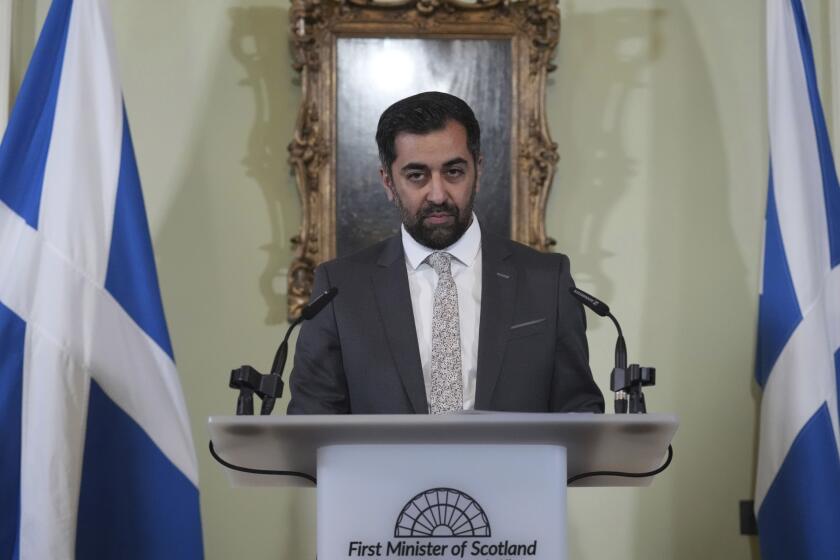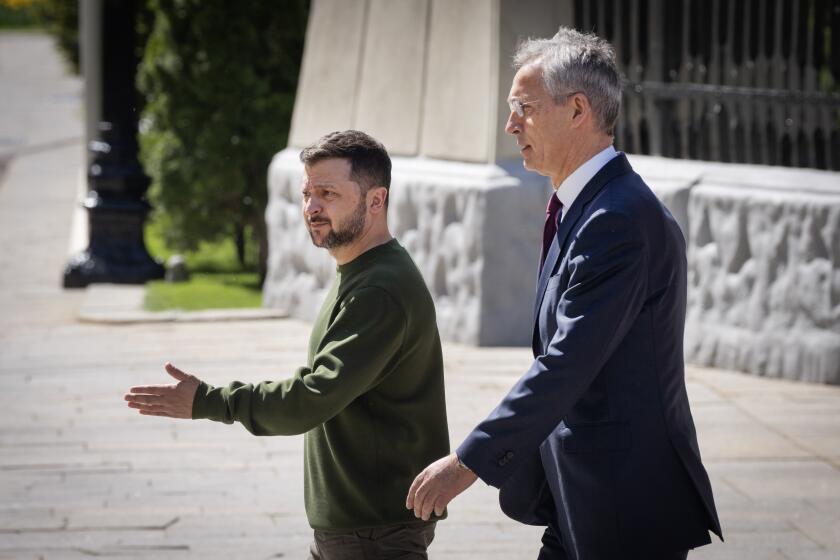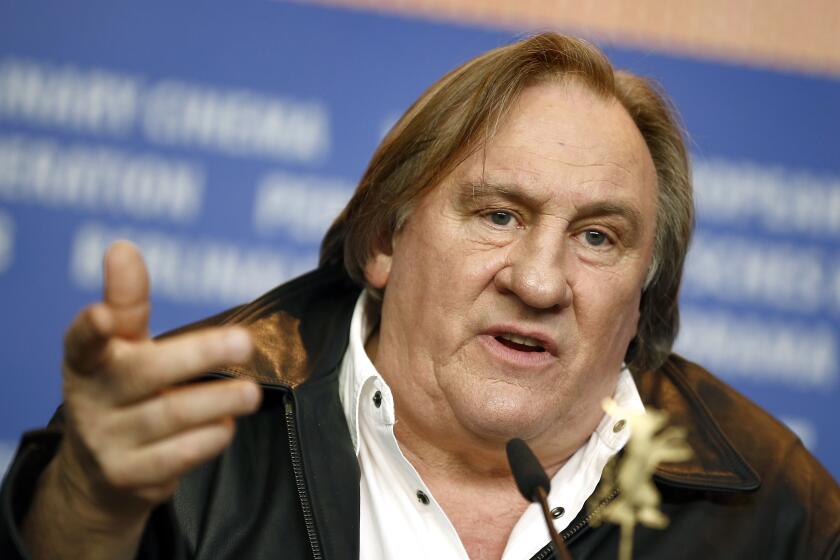Hillary Clinton, China officials agree to put human rights discussions on a separate track
Chinese officials and Secretary of State Hillary Rodham Clinton agreed Saturday to step up their cooperation on the global economic crisis and climate change, while treading carefully around the human rights issues that have often strained Washington’s relationship with Beijing.
In the final day of Clinton’s inaugural diplomatic trip to Asia, Chinese Foreign Minister Yang Jiechi said his government had agreed in principle to her proposal to add discussions of environmental and security issues to the high-level economic talks that dominate the official relationship.
“The two sides believe that energy and the environment will play an increasingly important role in the growth of bilateral relations,” Yang said at a news conference after a meeting that ran more than an hour.
Clinton has been eager to expand discussions between the two countries, believing U.S. cooperation with the Asian giant is key to easing many world problems, including security challenges from North Korea and Iran.
Yang and Clinton announced that the two countries have agreed to divide their discussions into a “strategic” track, which will include political and environmental questions, and an economic track.
The two countries’ relationship has been built around a “strategic economic dialogue” between top Chinese officials and then-Treasury Secretary Henry M. Paulson. Under Clinton’s proposal, she and Treasury Secretary Timothy F. Geithner would be closely involved in talks. It remains unclear which Chinese officials would take part.
Yang made no commitment on how China, the world’s leading emitter of greenhouse gases, would deal with climate change.
Although the Chinese government acknowledges the problem, it is heavily focused on strengthening its economy to provide jobs, and believes the developed world needs to put up more of the money to deal with the problem. Yang said China’s biggest contribution to easing the economic crisis was going to be its effort to continue to expand its economy.
Clinton said that promotion of human rights “is an essential aspect of our global foreign policy” and that she had brought up the subject with Yang, as U.S. officials do regularly with the Chinese government.
On Friday, speaking with reporters, she said that though the United States needed to continue to press human rights issues, it could not allow them to stand in the way of progress with the Chinese on other urgent areas of discussion.
In 1995, when she was first lady, Clinton won worldwide attention by strongly criticizing the Chinese for their human rights approach, including their one-child policy, during a United Nations women’s conference in Beijing.
Yang said China would continue to discuss human rights issues with the Americans, but noted that in Beijing’s view, such talks had to be based on “equality and mutual respect,” as well as the principle of noninterference in other countries’ affairs.
Yang, contending that most Chinese are not complaining about human rights, said, “You will see the biggest number of smiling faces here in China.”
But activists complained bitterly Saturday about their treatment during Clinton’s visit. Dissidents have been placed under house arrest and trailed by police to prevent them from getting anywhere near the secretary of State.
Among those who was detained was Zeng Jinyan, the wife of jailed activist Hu Jia. Zeng had tried to leave her home Saturday morning to meet with an AIDS activist who is scheduled to meet with Clinton today. Police officers stopped her, she said.
“Since this morning, I’ve been under house arrest. They are outside my house right now,” Zeng said in a brief telephone interview.
Other rights activists were told that they could leave home only if they were escorted by police and that they were not permitted to meet with Clinton or any other U.S. officials, according to the group Chinese Human Rights Defenders.
Renee Xia, the group’s international director, said in a telephone interview from Washington that Chinese police had frequently detained dissidents when foreign dignitaries were visiting, but that activists had hoped for better treatment during this trip.
“It is a huge disappointment. We had very high hopes for Clinton and the Obama administration,” Xia said. “The previous administration played the same game with putting human rights on the back burner, but the way it came out of her mouth, it was really shocking.”
Clinton also met with President Hu Jintao and Premier Wen Jiabao, and toured a high-efficiency natural-gas-fired power plant. U.S. officials hope China will turn more to such plants, rather than less efficient coal-fired facilities, to meet its enormous energy demands.
Clinton was to return to the United States today after attending services at a state-sanctioned church.
--
barbara.demick@latimes.com
More to Read
Start your day right
Sign up for Essential California for news, features and recommendations from the L.A. Times and beyond in your inbox six days a week.
You may occasionally receive promotional content from the Los Angeles Times.







